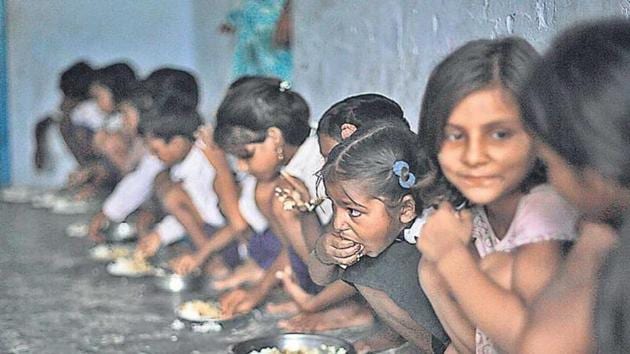The anticipation of political dividends drives India’s bipolar food policy
One policy may work in one region and fail in another. In the food-versus-nutrition debate — whether with respect to dietary supplementation or fortification — taste, accessibility, trust and pricing issues need to be looked at closely.
Union minister Maneka Gandhi’s comment on providing “energy-dense nutrient packets” as take-home ration for all pregnant women and lactating mothers as well as children between the age of six months and three years as part of the supplementary nutrition programme (SNP) of the Integrated Child Development Scheme (ICDS), has set off a debate. This time, the debate appears to be driven more by ideology than by the idea itself.

The debate got intensified with the minister and the Women and Child Development (WCD) officials charting out a separate set of nutrition guidelines, with the latter supporting the traditional non-processed hot food option. With the inter-ministerial Nutrition Council overruling the minister’s decision, the proposal is now on hold. But it has raised questions over the design choices for the nutrition programme.
Supplementary nutrition programmes in India have traditionally focused on hot cooked meals and take home rations. The Integrated Child Development Services (ICDS) programme was introduced in 1975. But more than four decades after being backed by a legal entitlement, its task is largely unfinished. It has to contend with India’s reputation of being home to the largest number of malnourished children in the world.
The Niti Aayog, in its National Nutrition Strategy, has questioned the efficacy of the take-home ration scheme and the quality of food supplements provided under the ICDS. Does the model need a rethink in terms of product choice, delivery mechanisms or implementation protocols? Activists, while vouching for some programmes, are willing to give them decades to reach fruition, but their surprising impatience to see results overnight for new government schemes strikes a jarring note. The proposal to alter the ICDS’s portfolio was subjected to similar scrutiny and judged by summary outcomes.
And then there is the political economy. Whether it is the Public Distribution System, mid-day meals or the SNP, our food policy has been primarily driven by the anticipation of political dividends. Any reforms to the programmes if projected or perceived by media and political organisations as compromising on entitlements, would be a no-go area.
Notwithstanding the safety net elements of the SNP and the political expediency surrounding it, the debate over delivery of hot cooked meals versus nutrition packets should do well to keep in mind a few important points. To begin with, the performance of the current system has been subpar. It is difficult to pretend it is working fine. Second, there is a fine line separating bad policy from bad implementation. Finally, and most crucially, one State policy can’t suit everybody. Take the case of Ready to Use Therapeutic Food (RUTF). Evidence shows that RUTF has been tough to introduce in tribal areas because of taste/preferences in food choices. What would work in one state, may not work in another setting. We propose that tests be conducted for the newer alternatives such as nutrient packs and let the choice be contingent upon the findings.
The solution to this bipolarity in policy and the product portfolio could be to take the cluster approach. Given that the nutrition programmes are notoriously prone to leakages, the integrity of nutrient composition in terms of their provisions is another marker that would need to be monitored.
In the food-versus-nutrition debate — whether with respect to dietary supplementation or fortification — taste, accessibility, trust and pricing issues need to be looked at closely. Are the entitlements of the community in sync with the overall consumption patterns? Based on the patterns, can there be a basis for altering the commodity portfolio? Assessing the demand of the beneficiaries for safety net programmes (within the context and feasibility of the programme) will go a long way in the uptake of these programmes and contribute to better nutritional outcomes.
Whether hot cooked food or as nutrient packets, if the programme were to be effective only as nutritional insurance, the most cost-effective way of delivering it, needs to be assessed. Which alternative serves the purpose better would depend on the context and ultimately on the quality of implementation and the customisation of the programme to the local context. In the end, it calls for robust systems of demand assessment and monitoring and evaluation.
Mamata Pradhan is doctoral scholar, University of East Anglia, and Devesh Roy is research fellow, International Food Policy Research Institute
The views expressed are personal



